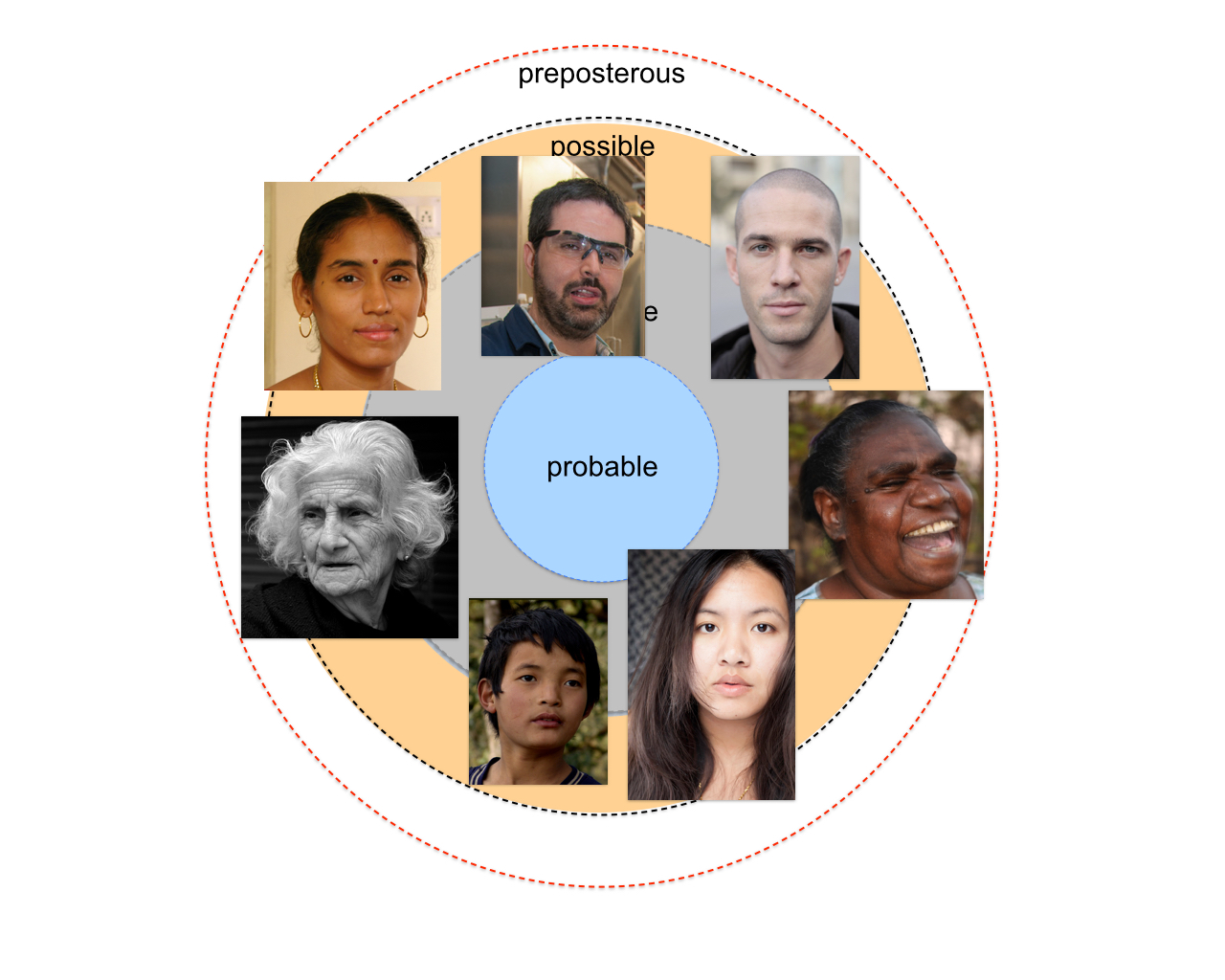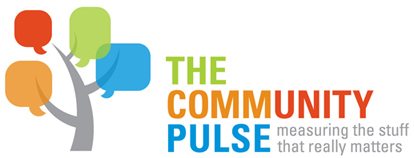The board of AIMIA, Australia’s peak body for the digital industry, invited Action Foresight to provide a strategic futures workshop over two evenings, one week apart to stimulate a deep rethink of the focus and purpose of the organisation and to develop practical steps toward a renewed vision. We used a version of our Four Futures workshop to enable the sixteen person team to imagine, design and document four key future initiatives to communicate to their new, incoming CEO. For AIMIA, using a foresight-based process enabled them to be both visionary and collaborative at the same time – integrating their diverse ideas, but also honing in on shared purpose and a common sense of a new vision.
Community Pulse Project Strategic Evaluation
The Community Pulse Project (CPP) is the City of Port Phillipʼs (CoPP) project for collecting data on changes the community considers important to
measure. CPP was set up in 2001 and, after 10 years in operation, the City of Port Phillip established a process to evaluate the project. This evaluation
looks back at 10 years in the development and innovation of the CPP, and looks forward at the strategic issues and options the project encounters
moving into the future. The evaluation was conducted between June 2011 and December 2011. Drawing data from 23 interviews, three in-depth large-group consultations with stakeholders, and extensive archival material, this report provides the results of a comprehensive evaluation of the project, and an analysis of its emerging strategic options.
The Community Pulse Project was set up in 2001 to allow the Port Phillip community to measure what matters to them. Its establishment was, in part, driven by a belief that it is important to understand how the community is changing in a variety of ways: environmentally, socially, economically and culturally. It addition it was guided by an understanding that community changes across these four areas are interconnected, and that a holistic view of change is required. These four areas are considered to be four pillars of sustainability, and have guided the development of CPP from its inception. Developed based on extensive community and expert consultation, the CPP created a series of indicators of change. CPP comprises 13 indicators with specific measures within each indicator to track community well-being. In its own words:
The Community Pulse helps our community to track long term trends on issues that they are passionate about and stimulate broader community awareness and action. The Community Pulse is particularly useful for things that may be changing at a pace that is difficult to detect, such as the gradual erosion of affordable housing.
Symposium on the “Global Mega Crisis”
The Journal of Futures Studies is running a Symposium called “Global Mega Crisis”. The initiators are two long standing stalwarts of long term thinking and futures studies, William Halal and Michael Marien.
The intention of the symposium is to create debate about the dimensions and scale of the challenges facing humanity. The symposium centers around an article they have written called “Global Mega Crisis: A Survey of Four Scenarios on a Pessimism-Optimism Axis”. We have begun to engage and invite a number of futures / foresight thinkers and writers to contribute.
Here is the overview written up for the symposium:
—————————————————————–
INTRODUCTION
A fundamental question in serious futures-thinking has to do with the idea of human progress. All matters considered, will life be better for humanity as a whole, for countries and organizations, for communities and families, and for individuals in the decades ahead? Until the past decade or so, progress was widely assumed. But in recent years this assumption has become problematic. The Great Recession, still unfolding in some places, has dampened prospects for many. The multiple threats of global climate change and more extreme weather events darken the long-range horizon. World population continues to grow, despite a declining rate of growth, and food, water, and energy issues are emerging. Political polarization and gridlock appears widespread. On the positive side, many new technologies are emerging that can potentially alleviate if not “solve” some if not many of these problems. So, overall, should we be very negative about future prospects, largely negative, largely positive, or very positive?
The two authors of the lead essay have engaged in a public debate on this question over the past two years. We both agree that a “Global MegaCrisis” is emerging, if not yet entirely here for all areas of the world. We disagree as to the outlook: Halal believes that new technology will probably make things better; Marien argues that it is possible but not likely, too little too late. After exchanging several long e-mails, we published our first version of this debate in World Future Review (1:5, Oct-Nov 2009). A second and more popularized version appeared in The Futurist (45:3, May-June 2011). A third version appeared in World Affairs: The Journal of International Issues, 2011.
This version refines our dispute and adds some new references. Similar to the other versions, it seeks to engage readers in discussion and debate through the device of four scenarios on a single axis of pessimism and optimism. By quantifying the rough probabilities of the four scenarios, one can easily see where one stands in relation to others on this scale. But then one must ask if the arguments for the assigned probabilities are persuasive. And many arguments can and should be made for each scenario.
The value of this exercise is not only to put the idea of progress on center stage, where it rightly belongs, but to encourage reflection on the two more complex middle scenarios (the largely negative “Muddling Down” and the largely positive “Muddling Up”), rather than the extreme negative position (of widespread disaster, Armageddon, species extinction, all-out nuclear war, or collapse of capitalism in all forms) or the extreme positive position (often implicit, but made explicit by those advocating the technological Singularity and/or widespread change of consciousness).
The Journal of Futures Studies is inviting a number of distinguished futurists and other futures-oriented thinkers, as well as several students, to ponder these scenarios.
The only caveats are that each respondent must:
1) Stay within a limit of between 500 and 1,000 words;
2) Quantify (% wise) the likelihood of each of the four scenarios over
the next decade and provide some argument in support of the position
taken; or provide a short argument why you chose to not quantify, or
your argument against the approach taken in this special issue (or
possible argument for an alternative);
3) Submit your response by September 10th 2011 to give W. Halal and
M. Marien time to formulate a conclusion. Email response to:
Jose Ramos
4) Format your contribution using JFS editorial guidelines:
http://www.jfs.tku.edu.tw/invauthors.html .
Halal and Marien will attempt to briefly respond to most or all of
these comments. And maybe, as events in our age of turmoil,
uncertainty, and multiple transformations unfold over the next few
years, we might try this exercise again.
Michael Marien edited Future Survey for the World Futures Society for 30 years, preparing some 21,000 abstracts, and is now embarking on establishing the website: GlobalForesightBooks.org, GFB.org now has some 2500 mini-abstracts of futures-relevant books published since early 2009, and long “Book of the Month” abstracts, most of which underlie his emerging worldview.
William E. Halal is professor emeritus of management, technology, and innovation at George Washington University (GWU), Halal is president of TechCast LLC – a virtual think tank tracking the technology revolution. TechCast was cited by the National Academies as one of the best forecasting systems available, and has been featured in the Washington Post, Newsweek, and other publications. Halal also co-founded the GWU Institute for Knowledge & Innovation.
———————–
You comments and questions are most welcome. For those interested in participating, you can put forward your expression of interest HERE.



